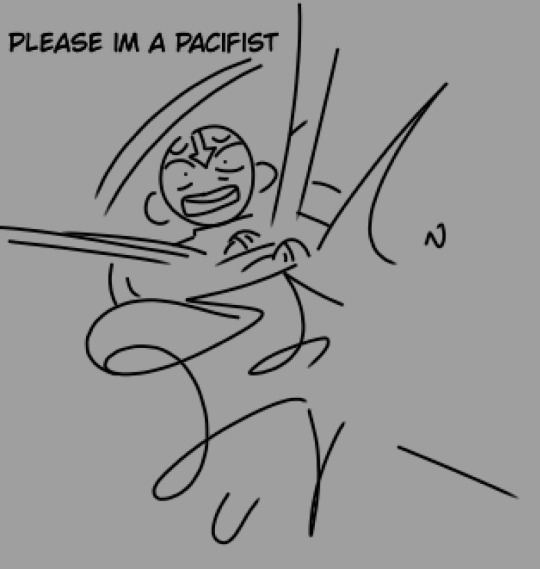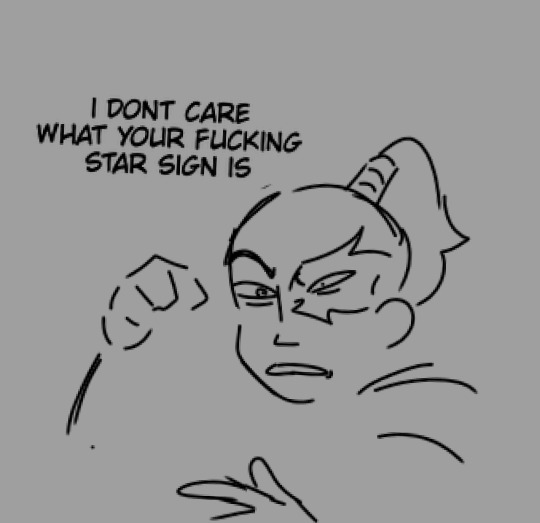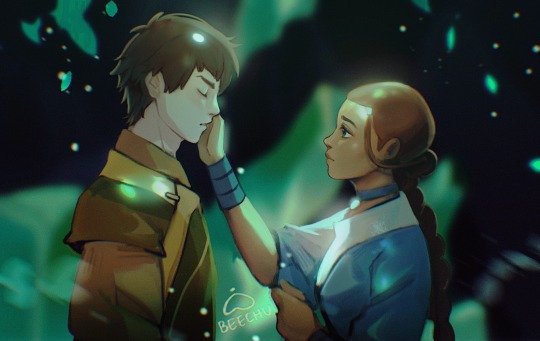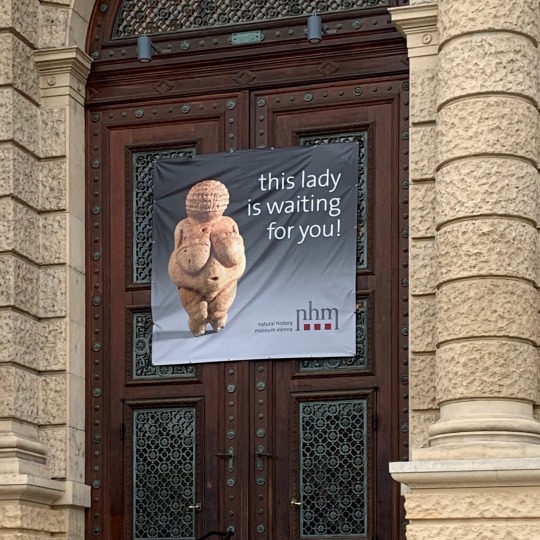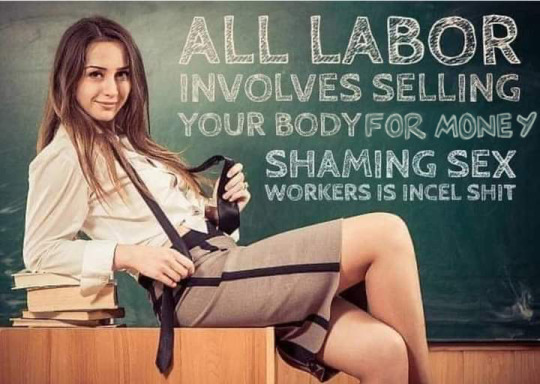Photo

Waterfall amidst a mountain covered in ash after a volcano eruption.
Taken in Iceland. One of the most unique landscape photos I’ve ever seen.
632K notes
·
View notes
Text
Katara's Story Is A Tragedy and It's Not An Accident
I was a teenaged girl when Avatar: The Last Airbender aired on Nickelodeon—the group that the show’s creators unintentionally hit while they were aiming for the younger, maler demographic. Nevermind that we’re the reason the show’s popularity caught fire and has endured for two decades; we weren’t the audience Mike and Bryan wanted. And by golly, were they going to make sure we knew it. They’ve been making sure we know it with every snide comment and addendum they’ve made to the story for the last twenty years.
For many of us girls who were raised in the nineties and aughts, Katara was a breath of fresh air—a rare opportunity in a media market saturated with boys having grand adventures to see a young woman having her own adventure and expressing the same fears and frustrations we were often made to feel.
We were told that we could be anything we wanted to be. That we were strong and smart and brimming with potential. That we were just as capable as the boys. That we were our brothers’ equals. But we were also told to wash dishes and fold laundry and tidy around the house while our brothers played outside. We were ignored when our male classmates picked teams for kickball and told to go play with the girls on the swings—the same girls we were taught to deride if we wanted to be taken seriously. We were lectured for the same immaturity that was expected of boys our age and older, and we were told to do better while also being told, “Boys will be boys.” Despite all the platitudes about equality and power, we saw our mothers straining under the weight of carrying both full-time careers and unequally divided family responsibilities. We sensed that we were being groomed for the same future.
And we saw ourselves in Katara.
Katara begins as a parentified teenaged girl: forced to take on responsibility for the daily care of people around her—including male figures who are capable of looking after themselves but are allowed to be immature enough to foist such labor onto her. She does thankless work for people who take her contributions for granted. She’s belittled by people who love her, but don’t understand her. She’s isolated from the world and denied opportunities to improve her talents. She's told what emotions she's allowed to feel and when to feel them. In essence, she was living our real-world fear: being trapped in someone else’s narrow, stultifying definition of femininity and motherhood.
Then we watched Katara go through an incredible journey of self-determination and empowerment. Katara goes from being a powerless, fearful victim to being a protector, healer, advocate, and liberator to others who can’t do those things for themselves (a much truer and more fulfilling definition of nurturing and motherhood). It’s necessary in Katara’s growth cycle that she does this for others first because that is the realm she knows. She is given increasingly significant opportunities to speak up and fight on behalf of others, and that allows her to build those advocacy muscles gradually. But she still holds back her own emotional pain because everyone that she attempts to express such things to proves they either don't want to deal with it or they only want to manipulate her feelings for their own purposes.
Katara continues to do much of the work we think of as traditionally maternal on behalf of her friends and family over the course of the story, but we do see that scale gradually shift. Sokka takes on more responsibility for managing the group’s supplies, and everyone helps around camp, but Katara continues to be the manager of everyone else’s emotions while simultaneously punching down her own. The scales finally seem to tip when Zuko joins the group. With Zuko, we see someone working alongside Katara doing the same tasks she is doing around camp for the first time. Zuko is also the only person who never expects anything of her and whose emotions she never has to manage because he’s actually more emotionally stable and mature than she is by that point. And then, Katara’s arc culminates in her finally getting the chance to fully seize her power, rewrite the story of the traumatic event that cast her into the role of parentified child, be her own protector, and freely express everything she’s kept locked away for the sake of letting everyone else feel comfortable around her. Then she fights alongside an equal partner she knows she can trust and depend on through the story's climax. And for the first time since her mother’s death, the girl who gives and gives and gives while getting nothing back watches someone sacrifice everything for her. But this time, she’s able to change the ending because her power is fully realized. The cycle was officially broken.
Katara’s character arc was catharsis at every step. If Katara could break the mold and recreate the ideas of womanhood and motherhood in her own image, so could we. We could be powerful. We could care for ourselves AND others when they need us—instead of caring for everyone all the time at our own expense. We could have balanced partnerships with give and take going both ways (“Tui and La, push and pull”), rather than the, “I give, they take,” model we were conditioned to expect. We could fight for and determine our own destiny—after all, wasn’t destiny a core theme of the story?
Yes. Destiny was the theme. But the lesson was that Katara didn’t get to determine hers.
After Katara achieves her victory and completes her arc, the narrative steps in and smacks her back down to where she started. For reasons that are never explained or justified, Katara rewards the hero by giving into his romantic advances even though he has invalidated her emotions, violated her boundaries, lashed out at her for slights against him she never committed, idealized a false idol of her then browbeat her when she deviated from his narrative, and forced her to carry his emotions and put herself in danger when he willingly fails to control himself—even though he never apologizes, never learns his lesson, and never shows any inclination to do better.
And do better he does not.
The more we dared to voice our own opinions on a character that was clearly meant to represent us, the more Mike and Bryan punished Katara for it.
Throughout the comics, Katara makes herself smaller and smaller and forfeits all rights to personal actualization and satisfaction in her relationship. She punches her feelings down when her partner neglects her and cries alone as he shows more affection and concern for literally every other girl’s feelings than hers. She becomes cowed by his outbursts and threats of violence. Instead of rising with the moon or resting in the warmth of the sun, she learns to stay in his shadow. She gives up her silly childish dreams of rebuilding her own dying culture’s traditions and advocating for other oppressed groups so that she can fulfill his wishes to rebuild his culture instead—by being his babymaker. Katara gave up everything she cared about and everything she fought to become for the whims of a man-child who never saw her as a person, only a possession.
Then, in her old age, we get to watch the fallout of his neglect—both toward her and her children who did not meet his expectations. By that point, the girl who would never turn her back on anyone who needed her was too far gone to even advocate for her own children in her own home. And even after he’s gone, Katara never dares to define herself again. She remains, for the next twenty-plus years of her life, nothing more than her husband's grieving widow. She was never recognized for her accomplishments, the battles she won, or the people she liberated. Even her own children and grandchildren have all but forgotten her. She ends her story exactly where it began: trapped in someone else’s narrow, stultifying definition of femininity and motherhood.
The story’s theme was destiny, remember? But this story’s target audience was little boys. Zuko gets to determine his own destiny as long as he works hard and earns it. Aang gets his destiny no matter what he does or doesn’t do to earn it. And Katara cannot change the destiny she was assigned by gender at birth, no matter how hard she fights for it or how many times over she earns it.
Katara is Winston Smith, and the year is 1984. It doesn’t matter how hard you fight or what you accomplish, little girl. Big Brother is too big, too strong, and too powerful. You will never escape. You will never be free. Your victories are meaningless. So stay in your place, do what you’re told, and cry quietly so your tears don’t bother people who matter.
I will never get over it. Because I am Katara. And so are my friends, sisters, daughters, and nieces. But I am not content to live in Bryke's world.
I will never turn my back on people who need me. Including me.
2K notes
·
View notes
Photo
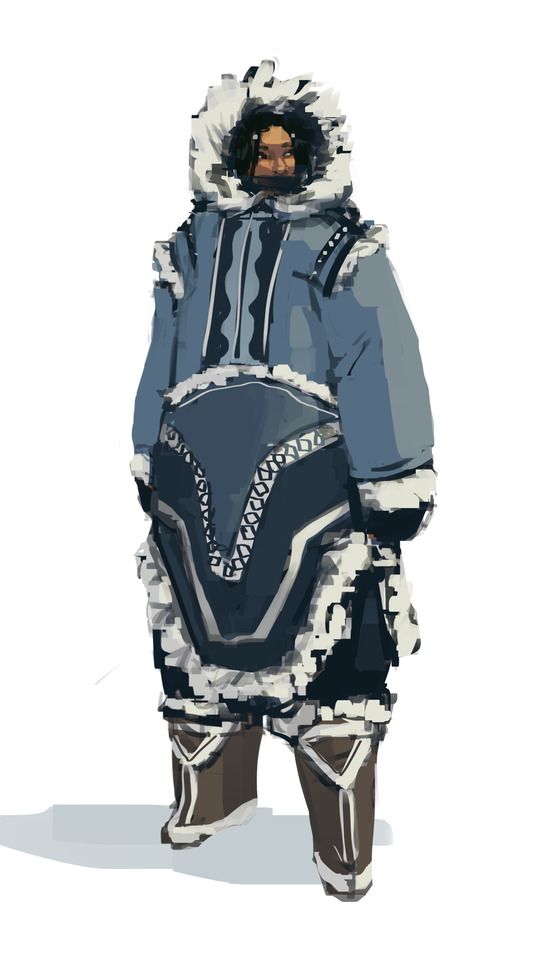
i wanted to redesign the watertribe parka so here’s a rounder and thus objectively better katara
27K notes
·
View notes
Text
“Auschwitz is outside of us, but it is all around us, in the air. The plague has died away, but the infection still lingers and it would be foolish to deny it. Rejection of human solidarity, obtuse and cynical indifference to the suffering of others, abdication of the intellect and of moral sense to the principle of authority, and above all, at the root of everything, a sweeping tide of cowardice, a colossal cowardice which masks itself as warring virtue, love of country and faith in an idea.”
From "If This Is a Man" by Primo Levi
108 notes
·
View notes
Text

Protect yourself during earthquakes!
If possible, DROP! COVER! HOLD ON!
Using cane, DROP! COVER! HOLD ON!
Using walker, LOCK! COVER! HOLD ON!
Using wheelchair LOCK! COVER! HOLD ON!
35K notes
·
View notes
Text
I want to clear up a mistake people make with Azula and Ursa.
Ursa didn’t play favorites.
Ursa didn’t think Azula was a monster.
Ursa simply, unequivocally, just didn’t enable Azula’s worst traits like Ozai did.
Ozai’s favorite child was Azula, but Ursa still loved her more.
Because enabling isn’t love.
What did Ozai’s enabling do? It made Azula into the type of person to never have any loyal friends. It made the type of person that Mai and Tai Lee would betray at the risk of their own lives.
Ursa pushed Azula to be with her friends. To be with Zuko. Ozai pushed Ursa away, and both kids suffered for it. Azula became a sadist, enjoying seeing her brother get burned—while Zuko was pushed away because he cared for his people.
Azula thought her mom hated her because her mom was the only one who cared enough to tell her no.
14K notes
·
View notes
Note
teaching your children imperialism is not good good parenting
telling your child “what is wrong with you” is not good parenting
not telling your child what they did wrong is not good parenting
making your kid think they hate them is not good parenting
Oh, I wondered when you would come back! I was getting bored.
We know who was teaching the children imperialism and it wasn't Ursa.
Ursa did not tell Azula "what is wrong with you" she said "what is wrong with that child" after Azula had left because sometimes characters voice their thoughts out loud in a cartoon in an aside for the benefit of the audience and the show is telling us that Ursa DOES NOT approve of the violent imperialistic attitude Azula is displaying.
Ursa also tells Azula what she did wrong. "Azula, we don't speak that way." Azula also knows when her mother will not approve of her actions, as shown when she lies to her mother about wanting to play with Zuko and when she lies when her mother asks what she is talking about when she tells Zuko that Ozai is going to kill him. Azula knew very well what she did wrong.
Which is also why she thought Ursa hated her, because she could not accept the truth, that she knew right from wrong and still chose wrong. Ursa did not "make" Azula think that, she just tried to parent her. Azula knows this, too, which is stated in the finale when Azula tries to imagine herself justifying her actions to her mother and fails in her own justifications, admitting that her mother actually loved her.
31 notes
·
View notes
Text
me immediately after watching the creator with my bf:

1 note
·
View note
Text
“LOL. You think your vote matters? ROFL and LOL.” Yes, I am aware my vote carries less and less relative power the more people I’m voting with, but unlike your glorious violent revolution, it actually exists.
24K notes
·
View notes
Text
wish, blown dandelion, that you weren't an enemy. wish it was easier. wish you had cut yourself off. green road, red sky, flush with no real color. they're all going to know it was you.I could take you by the hand. take us in hand. someday it's going to be better, and not because anyone fixed you. you don't have to give yourself. you don't have to give. you don't have to. the middle is safety; the ending is loss. you wanted loss, as long as it was extremely, extraordinarily specific. I hope you remember how to feast someday. I hope you take it slow. I hope you can write words like these without shame. you know running, even prescribed, can't save you. you know that to be worth your weight in gold is still crushing. let's consider a kinder metaphor. let's turn this mirror around.
- self image
3 notes
·
View notes
Text
am i the only one who assumed the popular social media trend of applying the suffix 'TV' after all the rerecorded taylor swift tracks and albums meant there was a television program accompanying each new album release and only just this week realized that it's just an abbreviation of 'Taylor's Version' ???
0 notes
Text

those irredeemable by means of suffering
won't you tell me it's over, tell me I don't have to keep my head up any longer
you keep your silence like a promise
i promise one day it'll all come back upon us
do you bear me as a grudge, as I once bore your burdens, as god bears me on his wings?
and he said
blessed be the fruit of your womb
now and then you reach down and steady my hand, but i'm still in the water, the light's ever farther
once you told me 'what you love you inherit'
i guess i just thought things would be different
maybe you'll only love the stars as long as they're out of reach
you'll break everything yours to keep
but i say
blessed be the fruit of your wounds
miriam leah beny
5 notes
·
View notes
